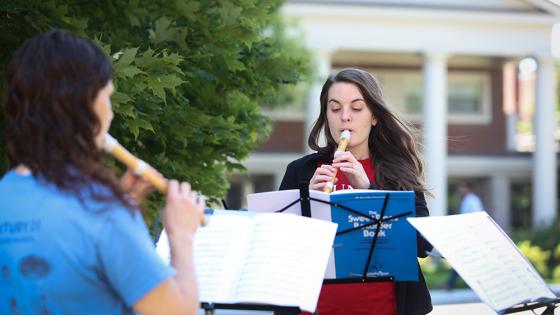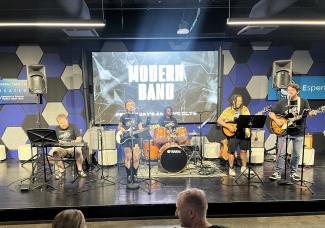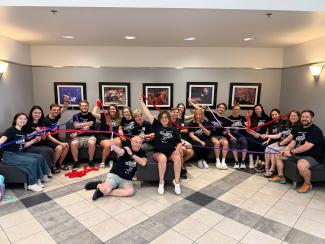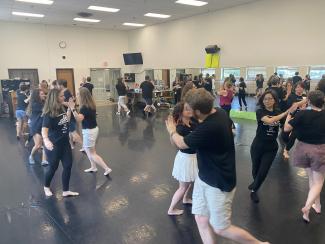Option 1: North Campus Dormitories. Suites are two rooms with doors that lock and a shared common area and bathroom. Rooms come with a closet, desk, and chair. Common area has a mini-fridge, microwave, and sinks. Attendees are paired with a same-gendered participant unless a specific roommate is requested. Those who do not wish to share a room may pay a private rate to have a suite to themselves. UK Housing cannot be booked for only M-F for each week of longer courses. The weekend must be included. For reservations and questions contact martina.vasil@uky.edu.
2026 Dorm Prices
- 2-Bedroom Suite (Shared) Nightly Rate = $38.50
- 2-Bedroom Suite (Private) Nightly Rate = $77
Linens (i.e., bedsheets, towels) add $11 per night
Orff Housing
- 12 nights shared suite, no linens= $462
- 12 nights shared suite, with linens= $594
- 12 nights private suite, no linens = $924
- 12 nights private suite, with linens = $1,056
Modern Band, Dalcroze, and Curriculum Development Housing
- 5 nights shared suite, no linens = $193
- 5 nights shared suite, with linens = $248
- 5 nights private suite, no linens = $385
- 5 nights private suite, with linens = $440
Option 2: Hotels
Lexington has a multitude of hotels of all price levels, including extended stay hotels with kitchenette suites to allow you to prepare your own meals. A hotel inside New Circle Road will allow quickest access to campus, but during the summer traffic in Lexington is pleasant even at rush hour so any location within Fayette County would be fine.
Option 3: Vacation Rentals
If you do not want to use the dorms, please consider using any of the popular vacation rental services. Many locations in and around Lexington are listed on these apps. Past participants have found success staying at people’s homes through these services. You can often rent entire homes and split the cost among several people.













